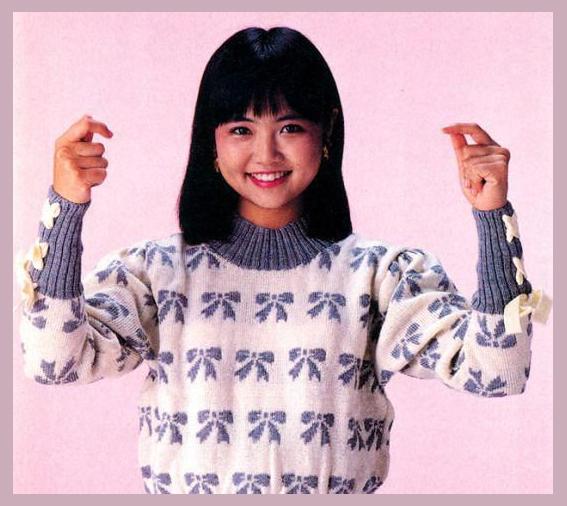 Iijima Mari
Iijima Mari
Iijima Mari: The Enigmatic Voice Behind "Ai Oboete-imasu Ka"
Amidst the vibrant tapestry of Japanese pop music, Iijima Mari emerged as a solitary star, her ethereal voice forever etched in the annals of musical history. Her haunting rendition of "Ai Oboete-imasu Ka" (Do You Remember Love?) transcended cultural boundaries, captivating audiences worldwide.
Early Life and Career Beginnings
Born in the quaint city of Kanazawa, Iijima's passion for music ignited at a tender age. As a young woman, she pursued classical training, developing an exceptional vocal range and technical prowess. However, fate had a different path in store for her. In 1985, Iijima auditioned for the record label Alfa Music and was chosen to sing the theme song for the iconic anime series "Macross: Do You Remember Love?"
"Ai Oboete-imasu Ka": A Timeless Masterpiece
The song "Ai Oboete-imasu Ka" became Iijima's breakout hit, propelled by its haunting melody and poignant lyrics. Its release in 1984 marked a watershed moment in Japanese animation history, and the song quickly became an enduring anthem for the genre. Iijima's ethereal vocals soared above the celestial synthesizer arrangement, capturing the bittersweet longing and bittersweet memories of the show's characters.
Challenges and Controversies
Despite her meteoric rise to fame, Iijima's career was not without its trials and tribulations. As a shy and introverted individual, she struggled with the intense spotlight that accompanied her newfound success. Additionally, her decision to leave Alfa Music in 1987 was met with controversy, prompting speculation about the reasons for her departure.
Discography and Legacy
Throughout her career, Iijima released a series of acclaimed albums, including "Precious" (1987), "Mariya" (1988), and "Eternal" (1991). Her music showcased her versatility, spanning genres from pop and jazz to classical and traditional Japanese folk. Despite her premature retirement from music in 1992, Iijima's influence continues to inspire countless artists and fans alike.
Members
As a solo artist, Iijima performed and recorded without a backing band. However, she collaborated with a wide range of musicians throughout her career, including notable arrangers and producers such as Hiroaki Takeuchi, Daisuke Inoue, and Yumi Matsutoya.
Conclusion
Iijima Mari remains an enigmatic figure in the world of music, her voice forever associated with the enduring legacy of "Ai Oboete-imasu Ka." Her ethereal vocals and poignant lyrics have left an indelible mark on Japanese popular culture, inspiring generations of artists and fans with their timeless beauty and profound emotional resonance.
Amidst the vibrant tapestry of Japanese pop music, Iijima Mari emerged as a solitary star, her ethereal voice forever etched in the annals of musical history. Her haunting rendition of "Ai Oboete-imasu Ka" (Do You Remember Love?) transcended cultural boundaries, captivating audiences worldwide.
Early Life and Career Beginnings
Born in the quaint city of Kanazawa, Iijima's passion for music ignited at a tender age. As a young woman, she pursued classical training, developing an exceptional vocal range and technical prowess. However, fate had a different path in store for her. In 1985, Iijima auditioned for the record label Alfa Music and was chosen to sing the theme song for the iconic anime series "Macross: Do You Remember Love?"
"Ai Oboete-imasu Ka": A Timeless Masterpiece
The song "Ai Oboete-imasu Ka" became Iijima's breakout hit, propelled by its haunting melody and poignant lyrics. Its release in 1984 marked a watershed moment in Japanese animation history, and the song quickly became an enduring anthem for the genre. Iijima's ethereal vocals soared above the celestial synthesizer arrangement, capturing the bittersweet longing and bittersweet memories of the show's characters.
Challenges and Controversies
Despite her meteoric rise to fame, Iijima's career was not without its trials and tribulations. As a shy and introverted individual, she struggled with the intense spotlight that accompanied her newfound success. Additionally, her decision to leave Alfa Music in 1987 was met with controversy, prompting speculation about the reasons for her departure.
Discography and Legacy
Throughout her career, Iijima released a series of acclaimed albums, including "Precious" (1987), "Mariya" (1988), and "Eternal" (1991). Her music showcased her versatility, spanning genres from pop and jazz to classical and traditional Japanese folk. Despite her premature retirement from music in 1992, Iijima's influence continues to inspire countless artists and fans alike.
Members
As a solo artist, Iijima performed and recorded without a backing band. However, she collaborated with a wide range of musicians throughout her career, including notable arrangers and producers such as Hiroaki Takeuchi, Daisuke Inoue, and Yumi Matsutoya.
Conclusion
Iijima Mari remains an enigmatic figure in the world of music, her voice forever associated with the enduring legacy of "Ai Oboete-imasu Ka." Her ethereal vocals and poignant lyrics have left an indelible mark on Japanese popular culture, inspiring generations of artists and fans with their timeless beauty and profound emotional resonance.